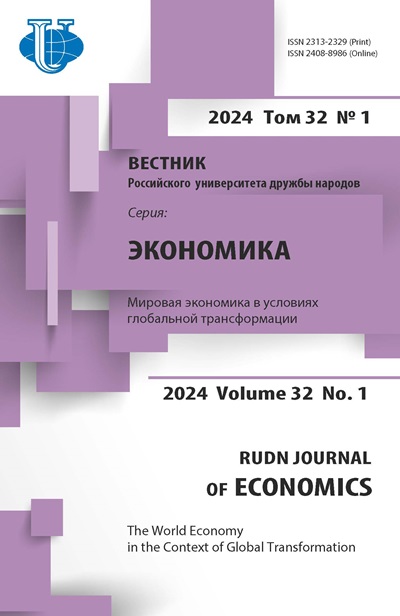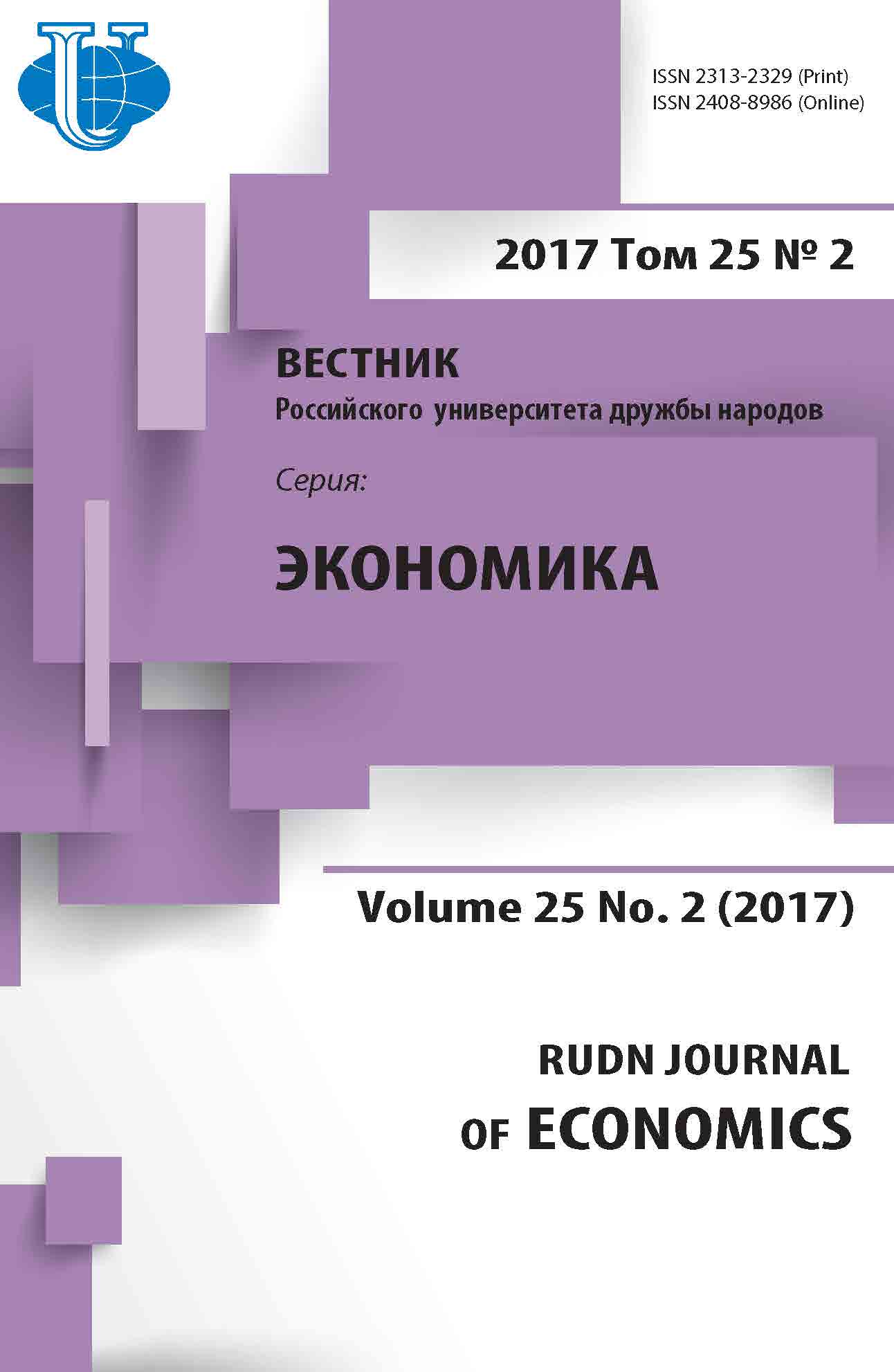SYSTEMATIZATION OF THE APPROACHES ASSESSING SOCIO-ECONOMIC DEVELOPMENT OF THE COUNTRIES BY USING WELFARE INDEX
- Authors: Balashova SA1, Nakhatakyan EO1
-
Affiliations:
- Peoples’ Friendship University of Russia
- Issue: Vol 25, No 2 (2017)
- Pages: 219-232
- Section: Articles
- URL: https://journals.rudn.ru/economics/article/view/17162
- DOI: https://doi.org/10.22363/2313-2329-2017-25-2-219-232
Cite item
Full Text
Abstract
Nowadays there is a lack of a unified approach to the welfare definition and methods for its assessment, therefore this article combines different welfare indices, analyzes their features, as well as the indicators that they include.The classification of these indices in accordance with the three theoretical approaches is suggested: objective, which is based on the statistical data; subjective, which is based on the subjective opinion of the population and objective-subjective, which combines both of the above mentioned approaches. The relevance of well-being indices is analyzed; it is also proven the interrelation of well-being indices with the traditional socio-economic indicators. It is defined that the correct assessment of well-being achieved by using objective-subjective indices, which take into account the statistical data as well as subjective opinion of the population.
About the authors
S A Balashova
Peoples’ Friendship University of Russia
Author for correspondence.
Email: balashova_sa@pfur.ru
Balashova S.A. Candidate of physico-mathematical sciences, Associate Professor of the Department of Economic and Mathematical Modeling at Peoples’ Friendship University of Russia.
Miklukho-Maklaya str., 6, Moscow, Russia, 117198E O Nakhatakyan
Peoples’ Friendship University of Russia
Email: Kate-nakhatakyan@mail.ru
Nakhakakyan E.O. Student of the Institute of World Economy and Business at Peoples’ Friendship University of Russia.
Miklukho-Maklaya str., 6, Moscow, Russia, 117198References
- Aivazyan S.A., Stepanov V.S., Kozlova M.I. Izmerenie sinteticheskikh kategorii kachestva zhizni naseleniya regiona i vyyavlenie klyuchevykh napravlenii sovershenstvovaniya sotsial’no- ekonomicheskoi politiki (na primere Samarskoi oblasti i ee munitsipal’nykh obrazovanii) // Prikladnaya ekonometrika. 2006. № 2. S. 18—84 (In Russ).
- Ignatova T.V. Natsional’noe blagosostoyanie: kontseptsii, modeli, metody otsenki. Rostov-na-Donu: Izd-vo SKAGS, 2007. (In Russ).
- Asheim G. Green National Accounting: Why and How? Department of Economics. University of Oslo. 1999.
- Barro R.J. Inequality and Growth in a Panel of Countries. Journal of Economic Growth. 2000. Vol. 5. No. 1. Pp. 5—32.
- Banerjee A.V., Duflo E. Inequality and Growth: What Can the Data Say? Journal of Economic Growth. 2003. Vol. 8. No. 3. Pp. 267—99.
- Becker S., Philipson J., Soares R. The quantity and quality of life and the evolution of world inequality. American economic review. 2005. No. 1. Pp. 1—26.
- Duarte A., Simões M., Andrade J.S. The welfare state and economic performance: quantiles and nonlinearities. Applied Economics Quarterly. 2016. Vol. 62. No. 4. Pp. 267—294.
- Koenker R., Bassett G. Regression Quantiles. Econometrica. 1978. Vol. 46. Pp. 33—50.
- Koenker R., Hallock K. Quantile Regression. Journal of Economic Perspectives. 2001. Vol. 15. Pp. 143—156.
- Micklewright J. What Can Child Anthropometry Reveal About Living Standards and Public Policy? An Illustration from Central Asia. Review of Income and Wealth. 2001. Vol. 47. Pp. 102—134.
- Morris M. Measuring the Condition of the World’s Poor: The Physical Quality of Life Index. New York, 1979.
- Gross National Happiness [Electronic resource]. Mode of access: http://www.grossnationalhappiness.com/
- Happy Planet Index [Electronic resource]. Mode of access: http://www.happyplanetindex.org/
- Human Development Index [Electronic resource]. Mode of access: http://www.hdr.undp.org/
- Legatum Prosperity Index [Electronic resource]. Mode of access: http://www.prosperity.com/
- Redefining Progress [Electronic resource]. Mode of access: http://rprogress.org/genuine_progress_indicator.htm
- ULF Systems [Electronic resource]. Mode of access: http://www.ulf-systems.de/
- World Health Organization [Electronic resource]. Mode of access: http://www.who.int/















